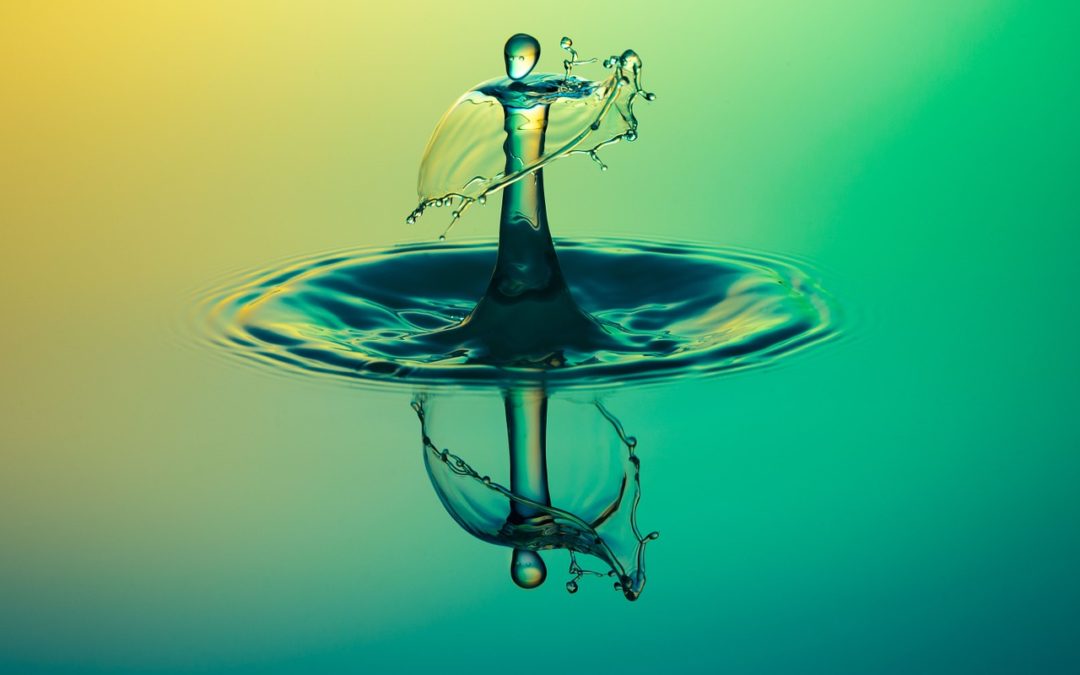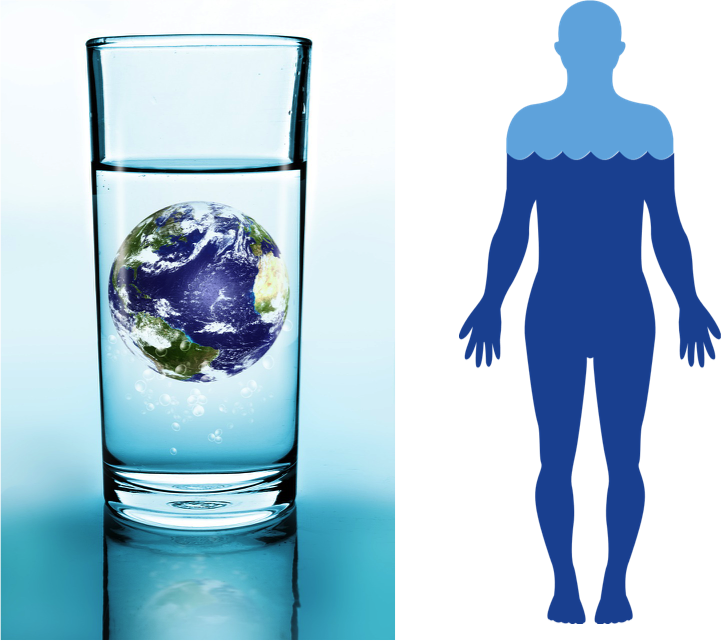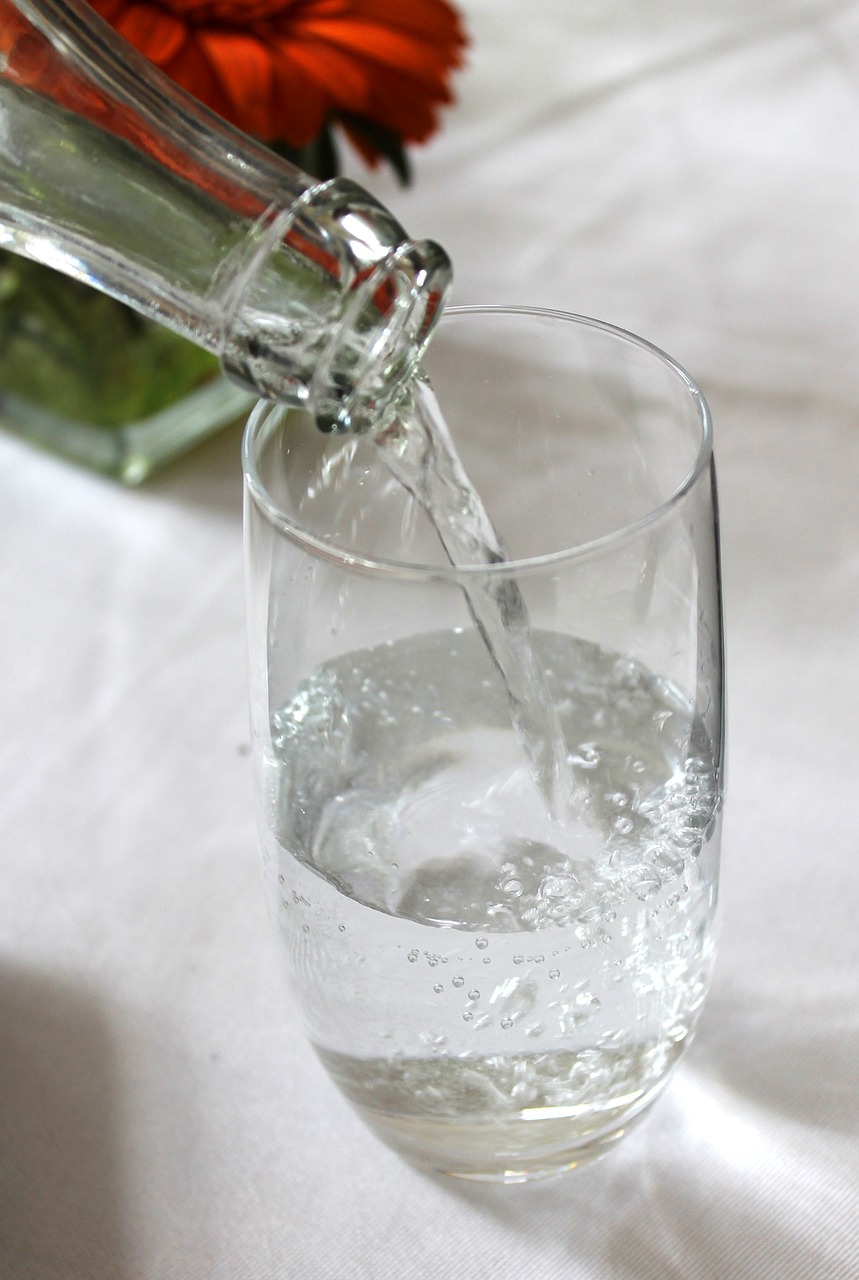Did you know that Blood Pressure and Water have a direct connection? Yes, you will be astonished to know that our blood pressure is also regulated by the amount of water we consume, and thus, water has a direct effect on our stress levels!
But before we start looking into this quality of water, let us first understand how our life is surrounded and affected by water:
- The planet Earth is covered by 2/3rd water
- On Earth, water is the only element which is naturally found in three states: Solid, Liquid and Gas
- Depending on the gender and body constitution, an average human being has 55% to 65% of the water in the body
- Newborn babies have 75% water in their bodies
- Our blood plasma is 92% water and plasma constitutes 55% of the blood volume
- Water Nourishes our Brain, which is 75% water
- Water Nourishes our spinal cord
- Water also lubricates our joints
- Water regulates the temperature of our body
- Our Heart is approximately 75% water
- Human Lungs have 83% water
- Human Bones have 31% water
- The above data should be enough to make us understand the importance of water in our body and in our life.
The above data should be enough to make us understand the importance of water in our body and in our life.
Next question that comes to our mind is: “When we have so much water in our body, why do we need to drink water?” The simple answer is: We lose approximately 3 litres of water every day through our bowels, urine, sweat, and breathing.
With this background, now let us talk about How stress and blood pressure issues get created when you are Dehydrated:
When we do not drink water for a considerable period, we get dehydrated. Studies have shown that when we are dehydrated, our brain sends signals to our kidneys, which in turn releases chemicals which allow the blood to retain and preserve water. A few implications elaborated below:
- A considerable drop in water levels in the body mostly drops the blood pressure but there are cases where this may result in high blood pressure as the body struggles to supply blood. Dehydration causes a drop in energy and moisture levels in the skin. This condition creates stress …now you know why at times you often wonder why you are not feeling very good?!
- People find signs of cognitive impairment and mood change, which further deteriorates the stress conditions. In these conditions, people will not be able to perform optimally in their regular jobs. This will create further demotivation in their minds and in turn create even more stress.
- What happens to the body when the brain gets dehydrated? The dehydrated brain works more than a normal hydrated brain to support the same amount of work. This creates considerable energy loss for the brain which creates further stress. A dehydrated brain has the potential to shrink, which will take your stress a notch higher.
- In cases of chronic dehydration, the body is not able to supply blood efficiently due to the constriction of blood vessels. The heart needs to work harder to supply blood, which can result in high blood pressure.
- Dehydration also increases the concentration of Sodium ions, which can cause high blood pressure.
- Drinking cold (iced or from the refrigerator) water also increases the blood pressure. People suffering from Cardiovascular diseases should avoid taking cold water.
Now, let us look at the other extreme: How stress and blood pressure issues get created when you are Overhydrated:
We have always heard drink LOTS of water, but this comes with disclaimers. Overhydration is caused by over-consumption of water in a short period of time. A few implications of this condition are mentioned below:
- An overhydrated brain slows or stops sending water retention signal to the kidney and thus, to the rest of the body.
- Overhydration dilutes the sodium electrolyte in the body and swells up the cells.
- The kidney cannot keep up with the volume of water intake, which results in diluting the urine.
- Generally, sportspersons get into the trap of overhydration, as it is difficult for their body to regulate water due to their extreme physical conditions.
- Severe overhydration causes water intoxication, which results in headaches and vomiting. In the rarest of the rare instances, this can also cause seizures and death too.
It is to be noted that drinking water is not a shortcut to controlling blood pressure, but it is definitely one of the most important sources in creating overall wellness in the body.
Studies have shown that if you keep yourself sufficiently hydrated, then over time your blood pressure becomes normal. Anyone suffering from the below conditions will see benefits when they stay sufficiently hydrated:
- Water is one of the commonly available drinks in nature which helps people suffering from low blood pressure (this was proved by a study conducted by the Vanderbilt University’s Autonomic Dysfunction Centre)
- Water helps people suffering from autonomic nervous system issues (i.e nerves which are controlling the involuntary functions)
- Water helps people suffering from Diabetes, Stroke and reduces the risk of certain types of cancer.
- If we choose water over sodium-rich or sugar-rich drinks, then we directly or indirectly control our blood pressure. Water reduces Sodium in the blood and by choosing not to drink sodium-rich drinks, you are avoiding passing extra sodium to your blood. This simple choice will manage your blood pressure well. Additionally, when we choose water over sugar-rich drinks, we manage our weight better which in turn manages blood pressure optimally.
So, what is the right amount of water that we should drink? A man on an average should consume between 2.5 to 3.7 litres of water daily and a woman should drink between 2 to 2.7 litres of water. This can change according to the environment and the physical condition of one’s body.
There were two friends’ – young guys in their 20’s but over-weight – they came to an Ayurveda and Yoga instructor for help. They had tried various exercises, change in diet plans but were not able to manage their weight in a sustained fashion. The instructor examined them and after the consultation, he smiled and said “I will treat both of you, but you should not discuss your treatment with each other. After three months I will share the secret of your treatments.”
For three months, both the friends came regularly, learnt yoga and soon they had achieved their optimum body weight. They were very happy and were now eager to know how they had managed their weight so well when they had tried the same exercises earlier too but without results!
The Yoga instructor said “Both of you had a severe imbalance of water. Joan was dehydrated while Alex was overhydrated. In both these conditions, you were not able to manage your weight. Joan was substituting water with high sugar drinks and this was resulting in high blood pressure and weight gain. So, I asked her to increase water intake and stop drinking sugar-rich drinks. Alex, on the contrary, was suffering from overhydration and this was causing high water retention in his body. I asked him to reduce his water intake. With constant practice of Yoga and the right water intake, you both became fit over time. I asked you guys not to talk about the treatment to each other because you were not taking the water intake seriously and you might end up comparing your prescriptions and this would have raised doubts in your mind about the treatment. Now as you have achieved what you had set out to achieve, it is ok to reveal the details.” Joan and Alex fell silent and understood the value of water and how a slight shift in perspective had changed their lives.
So, with the above learnings, what do you have to do?
- Start taking daily – 2.7 to 3.7 litres of water if you are a man or 2 to 2.7 litres of water if you are a woman.
- Start taking water instead of Drinks containing sodium or sugar – to reduce your blood pressure
- Choose water over Coffee or Tea – for better health of your heart and blood pressure
- Avoid refrigerated or iced water
- Create awareness regarding your thirst patterns
- Make sure you drink the right amount of water – over or under the intake of water is trouble
See you with another interesting insight next week…Keep yourself Optimally Hydrated, Stay Healthy, Stay Stress-free!




Good article Anurag
Thanks Girish…